Results
-
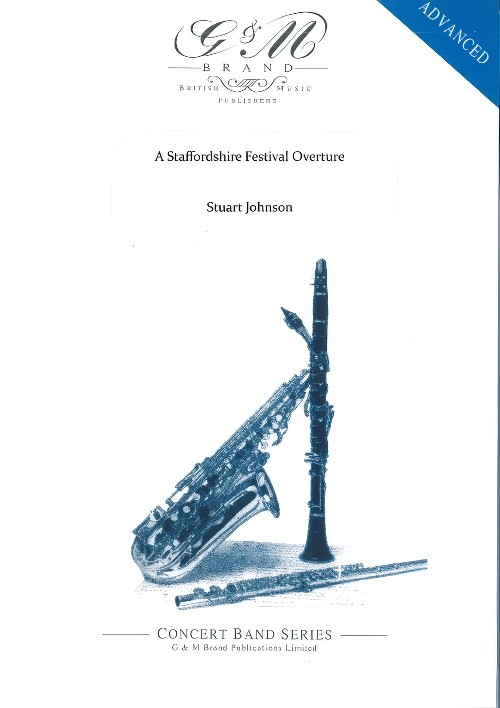 £16.95
£16.95A Staffordshire Festival Overture (Concert Band - Score Only) - Johnson, Stuart
When Johnson, Stuart was appointed music advisor for Staffordshire, England, it turned out that the the concert band were soon to perform in a huge festival for young musicians in The Royal Albert Hall, and so far an opening piece had not yet been chosen .... Johnson solved the problem brilliantlywith this technicall brilliant yet wonderfully sounding overture.
Estimated dispatch 7-14 working days
-
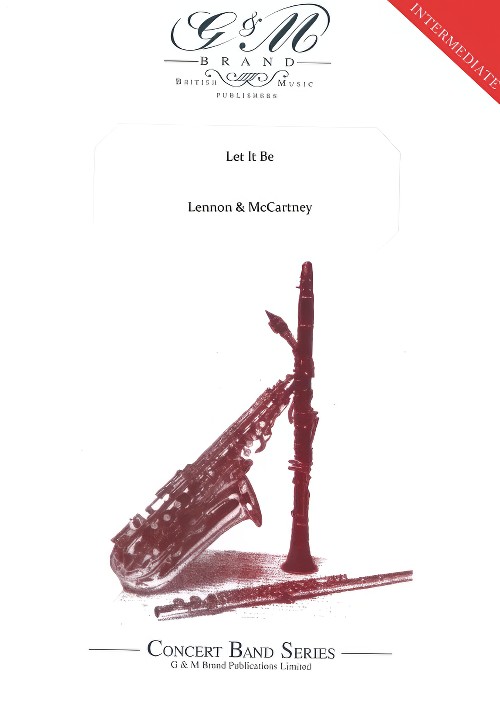 £74.95
£74.95Let It Be (Concert Band - Score and Parts) - Brand, Michael
Let It Be was written and recorded towards the end of the Beatles successful times, by now the group were in disagreement and the original recording was not released to start with, as they wanted to link it to a film. It was eventually released in 1970 and has since become something of a pop anthem.
Estimated dispatch 7-14 working days
-
 £14.95
£14.95Let It Be (Concert Band - Score Only) - Brand, Michael
Let It Be was written and recorded towards the end of the Beatles successful times, by now the group were in disagreement and the original recording was not released to start with, as they wanted to link it to a film. It was eventually released in 1970 and has since become something of a pop anthem.
Estimated dispatch 7-14 working days
-
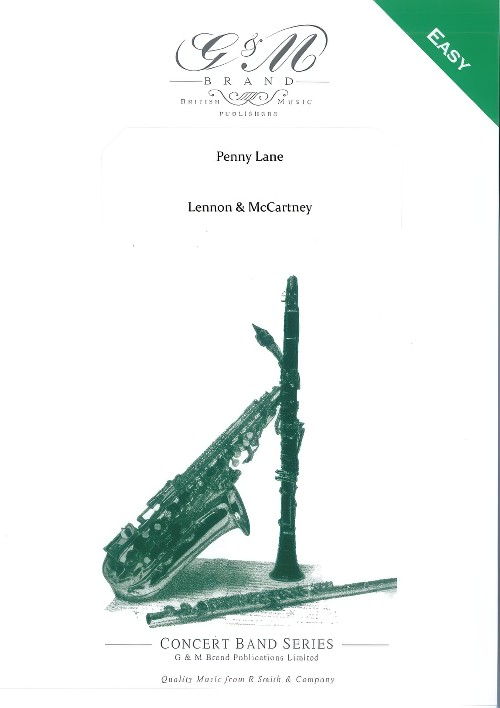 £49.95
£49.95Penny Lane (Concert Band - Score and Parts) - Farnon, David
Penny Lane is a street in Liverpool and gave the title to one of the best-selling singles of all time. It was released in 1967 by which time The Beatles were the Worlds number one group and started experimenting with different production techniques - leading to the ground breaking album Sergeant Pepper.
Estimated dispatch 7-14 working days
-
 £9.95
£9.95Penny Lane (Concert Band - Score Only) - Farnon, David
Penny Lane is a street in Liverpool and gave the title to one of the best-selling singles of all time. It was released in 1967 by which time The Beatles were the Worlds number one group and started experimenting with different production techniques - leading to the ground breaking album Sergeant Pepper.
Estimated dispatch 7-14 working days
-
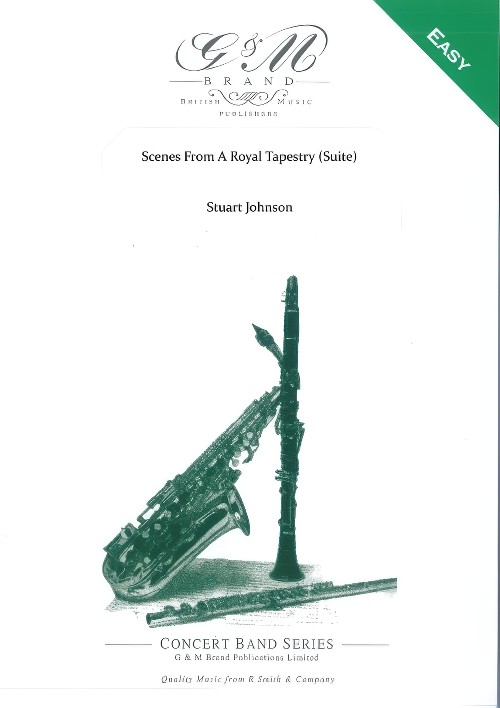 £74.95
£74.95Scenes From A Royal Tapestry (Suite) (Concert Band - Score and Parts) - Johnson, Stuart
Before the days of photography, the great state occasions were captured in paintings and tapestries. In this Suite, the composer has imagined the pomp and splendor of the English court at work and play, capturing each mood in a short movement.
Estimated dispatch 7-14 working days
-
 £14.95
£14.95Scenes From A Royal Tapestry (Suite) (Concert Band - Score Only) - Johnson, Stuart
Before the days of photography, the great state occasions were captured in paintings and tapestries. In this Suite, the composer has imagined the pomp and splendor of the English court at work and play, capturing each mood in a short movement.
Estimated dispatch 7-14 working days
-
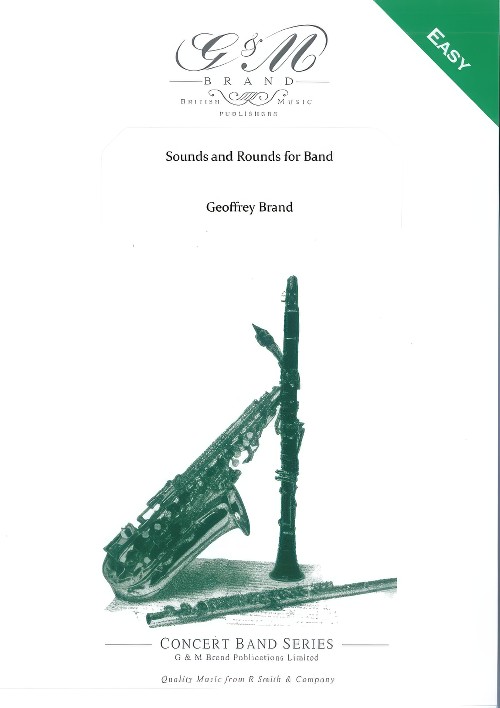 £59.95
£59.95Sounds and Rounds for Band (Concert Band - Score and Parts) - Brand, Geoffrey
If you have ever stood before a Concert Band and wondered how you may best help them to sound better then SOUNDS will help. SOUNDS are exercises designed to improve DYNAMICS, RHYTHM, CRESCENDO and DIMINUENDO, INTERVALS, RESTS and ACCENTS. The exercises can also be used for warm-up purposes. They are interesting to play whilst creating an awareness of some of the fundamentals of good performance. ROUNDS are a form of Canon in unison (or octaves) with the players entering at regular rhythmic periods. The first Rounds were printed in 1609 so people have enjoyed performing this form of music for a very long time and still do. Kookaburra comes from Australia, Row Row Row the Boat is English, Frre Jacques is French and in this version a variation on the original melody has been added which also works as a round and adds to the fun. A full score has been provided in order to facilitate rehearsal.
Estimated dispatch 7-14 working days
-
 £11.95
£11.95Sounds and Rounds for Band (Concert Band - Score Only) - Brand, Geoffrey
If you have ever stood before a Concert Band and wondered how you may best help them to sound better then SOUNDS will help. SOUNDS are exercises designed to improve DYNAMICS, RHYTHM, CRESCENDO and DIMINUENDO, INTERVALS, RESTS and ACCENTS. The exercises can also be used for warm-up purposes. They are interesting to play whilst creating an awareness of some of the fundamentals of good performance. ROUNDS are a form of Canon in unison (or octaves) with the players entering at regular rhythmic periods. The first Rounds were printed in 1609 so people have enjoyed performing this form of music for a very long time and still do. Kookaburra comes from Australia, Row Row Row the Boat is English, Frre Jacques is French and in this version a variation on the original melody has been added which also works as a round and adds to the fun. A full score has been provided in order to facilitate rehearsal.
Estimated dispatch 7-14 working days
-
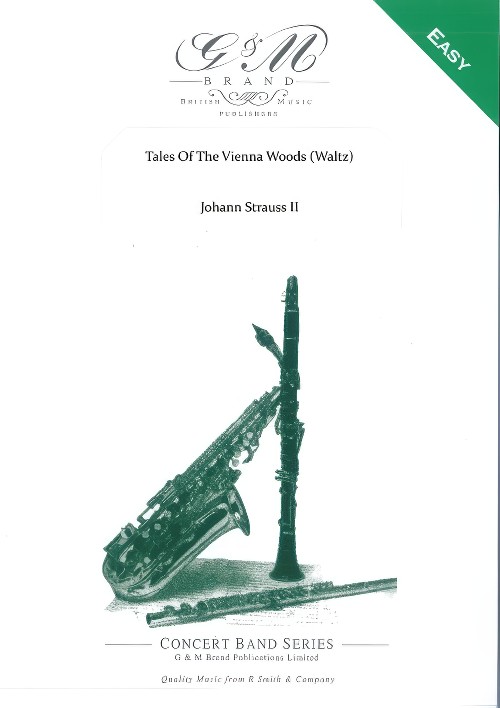 £49.95
£49.95Tales Of The Vienna Woods (Waltz) (Concert Band - Score and Parts) - Brand, Geoffrey
Most of Johann Strauss' 'Master' Waltzes were written during the 1860's, including the "Blue Danube", "Morning Papers" and "Wine, Woman and Song", and this one is no exception. Like his father, Strauss toured virtually the whole of Europe with his orchestra, being acclaimed as Austria's King of the Waltz, and visiting the USA in 1876 to celebrate the centenary of Independence. This arrangement by Brand, Geoffrey simplifies the original version slightly but retains all the colour and flair of a sparkling bygone era.
Estimated dispatch 7-14 working days
